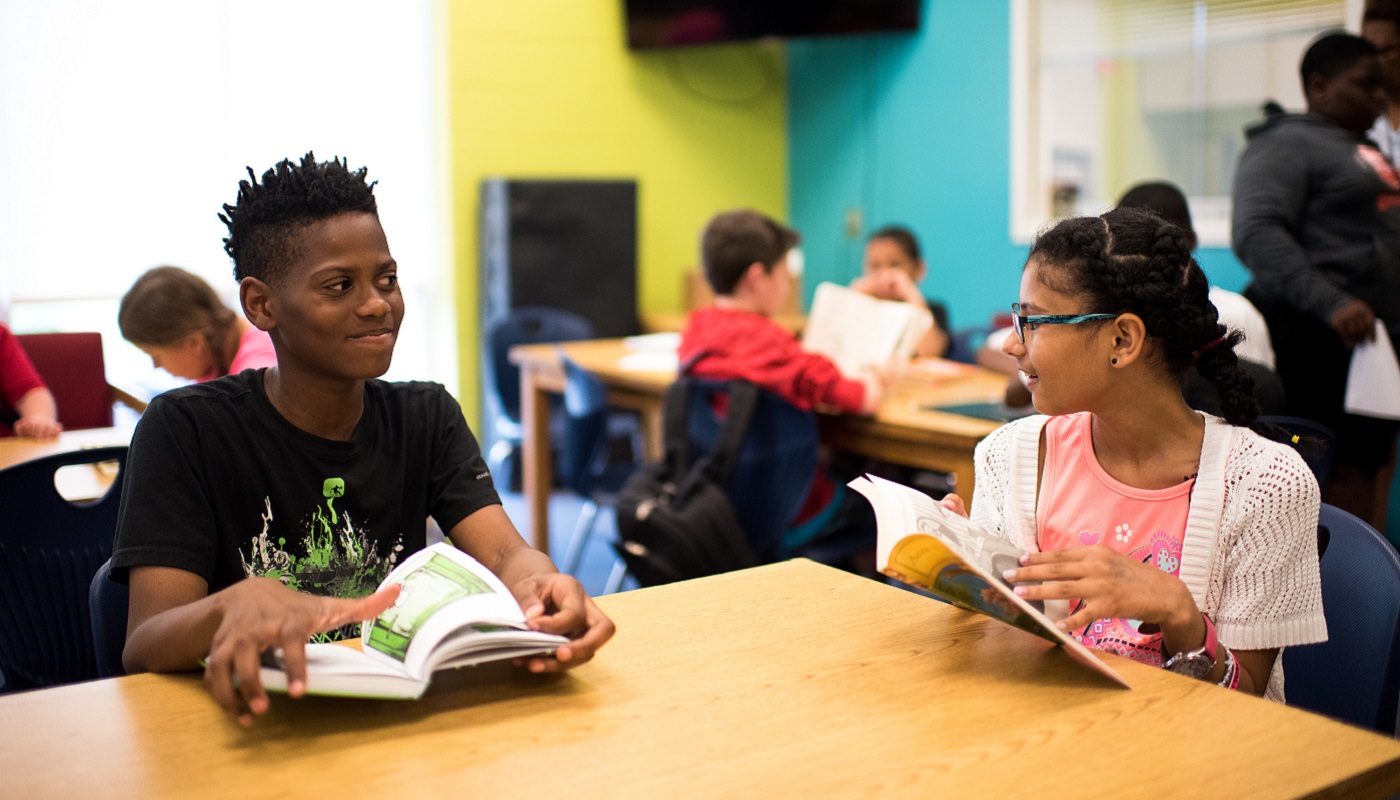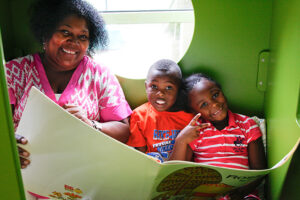
5 Tips for Encouraging Children to Read
This content has been archived. It may no longer be relevant
Early learning experiences including reading are a large part of children’s intellectual development. In fact, reading proficiency in third grade is a significant predictor of a child’s future success.
KNOW THE FACTS
- About 96 percent of students who read on grade level by the end of third grade will graduate high school on time.
- Only about 58 percent of third graders in Charlotte-Mecklenburg Schools are reading on grade level.
PREVENT THE SUMMER SLIDE
Although school is out, reading is important for children to do throughout the summer months so they continue developing a strong foundation for success in school and life. With more opportunities to access books at an early age, children are likelier to develop good reading habits and avoid the summer slide – the tendency for students to lose or forget skills over the summer that they learned during the previous school year.
 ENCOURAGE READING
ENCOURAGE READING
1. Engage in active reading
Active reading refers to reading a book with a child instead of reading a book to a child. This approach positively impacts a child’s language skills as well as the ability to understand what he or she reads.
The focus of active reading is the three ABC’s – asking questions, building vocabulary and connecting to the child’s world. This encourages a conversation so the child can develop an interest of reading and a love of reading.
2. Choose age-appropriate books
Picture books are the best choice for children in kindergarten, first and second grades. These books are high-interest but also have some strong vocabulary words. An activity that adults can do with these books is picture walking, which involves the child looking at the book’s pictures and predicting the story based on those images.
For additional vocabulary work mix in more complex books, like those with chapters, during reading time. Children have an easier time understanding complex words and sentence structures when they hear them read aloud.
 3. Create a pattern of reading
3. Create a pattern of reading
Select books to read with children after school or each night before bedtime. Not only will it help children wind down, but also create a daily reading habit and foster stronger literacy skills.
4. Check out local programs
Summer Break is Charlotte Mecklenburg Library’s annual summer learning program that combines the recommended 20 minutes of reading per day with other activities. Educational yet fun programs like this one allow children to develop a love for reading and learning, even in the summer.
Adults also can extend their learning by attending one of the library’s active reading trainings held throughout the year.
5. Find additional resources online
Read Charlotte provides additional tips like summer reading lists, fun reading graphics and ways families can sign up for free books and reading advice.
By working with schools, employers and various community organizations to boost summer learning, United Way ensures children have the tools they need to succeed. Learn more about United Way’s focus on education, including early childhood literacy.




